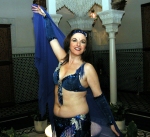 I’m about to start my Show & Tell Workshop for the FF&P chapter of RWA, and as always I’ve started thinking about the workshop. Inevitably, questions come up that aren’t related to the workshop, and I really do try to keep folks focused just on the workshop. There’s a reason for this.
I’m about to start my Show & Tell Workshop for the FF&P chapter of RWA, and as always I’ve started thinking about the workshop. Inevitably, questions come up that aren’t related to the workshop, and I really do try to keep folks focused just on the workshop. There’s a reason for this.
When I first got serious about writing one of the most frustrating things about it is that there are so many moving parts. There’s dialogue, pacing, getting your characters on the page, narrative, description, punctuation, grammar, action, active voice, viewpoint, plotting, theme, and the list goes on and on. It’s enough to make anyone crazy. Most of this stuff you learn because any writer starts out as an avid reader—and by reading you learn a lot about this stuff. But sometimes you have to break it down.
Breaking it down is something I learned from dance (belly dance specifically). In dance, you break down the moves so you can learn them not just one step at a time, but one body part at a time. Breaking it down with the writing lets you focus on not just trouble areas, but on getting a firm grip on some of the technical stuff. Why do this?
Getting the technical stuff out of the way:
1- Lets the characters and story shine—you really want the story and the characters to be front and center, not all the other stuff. To keep that other stuff invisible, you have to master it, so you can forget it.
2-Means less revision. You’re not constantly having to fix the typos—a little of that is not a lot of work, but many, many typos mean much, much work.
3-Lets you focus on bigger issues. Let’s face it, if you’re struggling with viewpoint control, or showing vs. telling, you’re probably going to be neglecting the bigger stuff—like did you really motivate your main character’s key choices, or did you really nail that dark moment, or do you have a strong grasp of what the book is really about. I’ve seen a lot of writers dig technical holes for themselves, and everything else suffers.
4-Can speed up your production. The stronger my technical skills have become, the smoother the writing, meaning fewer drafts, and faster production. This isn’t always true—other things (such as life) can step in to interfere with a project, but strong technical skills means you aren’t stuck trying to solve technical problems with the work.
5-Lets you have some more fun. Technical stuff is often a drag—it’s a lot of detail, so if you’re not a detail person this can seem like stuff you really don’t want to deal with. It’s actually the stuff you want to get so good at that it stops mattering. Then you can really fly.
6-Puts you on the path to art. We all go through stages of learning—and sometimes we’re blessed with stories that are gifts. But art really comes from a marriage of craft and passion. You may be born with the passion, but if the craft is lacking—the technique—expressing your passion can be held in check. So this is where you want to be so solid with your technical skills than you can actually forget them—and let something more take over.
7-Means that your technique is always there for you. Stuff happens. Passion can fade. And deadlines can bring stress that makes your muse hide. But your technical skills will be there no matter what. And it’s great to be able to fall back on that sometimes when you need to get work produced because that is your job.
So…don’t be afraid to break it down—to focus on one skill at a time. Pick an area where you know your skills are weak and just make that the thing you want to improve. Then you can figure out how to put it back together to get your story on track.